The Oatmeal has made a cartoon about when (and why) to use who and whom. This is not his first foray into grammar; he’s got a number of others. This one’s funny, and I like his examples.
He also points out that we sometimes use the faintly archaic word whom if we want to be fancy. Couldn’t agree more. I’d say that’s a major reason for using whom these days.
But there’s something about this cartoon that’s a bit off, and I thought I’d comment.
Why do we have grammar?
Or rather, why do languages have grammar? A linguist sees grammar a little differently than most people. For a linguist, a grammar is a way of explaining how the parts of language fit together — how words get built up into sentences, and how the parts of words attach. A grammar is a description of the patterns that speakers use. People don’t use these patterns to be polite, or correct, or to maintain the social order. They do it because without arranging words into orderly patterns, too would to the be interpret sentences hard. Sorry! I meant that ‘the sentences would be too hard to interpret’.
And there’s a really interesting fact about the grammar of a language: it’s mostly unconscious to its users. Consider the way we use the 3rd person singular -s:
You might not have thought about what that little -s is doing, and that’s my point: you don’t have to. Over and over again throughout your life, you’ve used it correctly without even thinking, never getting it wrong (except for slips of the tongue). That’s your internalised grammar of English at work.
Now to the cartoon.
In explaining who and whom, the Oatmeal has decided to start with an explanation of subject and object. This is kind of tricky for grammar n00bs, but he’s got some great examples, and if you’re fuzzy on the difference, you should check it out.
So the explanation goes: if your who (whoever it is) is the subject of its sentence, use who; if it’s the object, use whom.
The Oatmeal even gives a mnemonic:
Good in theory.
The problem is that in practice, English speakers use who instead of whom all the time. These are all okay:
though that last one is a bit grand for everyday conversation. And the Oatmeal says as much in the cartoon.
But here’s the thing: it works the other way, too. People use whom even when it’s the subject of the sentence. I took a look through a corpus — a body of language data. I used wordandphrase.info, which gives you lovely charts like this:
This is part of the chart that you get when you search for whom, and you’ll see that whom appears in blue, right down the middle column for each sentence. You’ll also find that the words that appear nearby are coloured by part of speech (nouns, verbs, and so on). Here’s the funny part: if you hunt around through these sentences, you can actually find lots of examples where the writer has used whom, even though it’s the subject. Here are some:
yes , the economy goes up and down , but whom do you think is going to protect you the most ?
Who will protect you? He will (not him will), so by the Oatmeal rule, it’s a subject and it should be who. Nope, it’s in the corpus as whom.
mother ‘s harsh stares and accusations . He , a man whom I later found out had not one drop of blood running through
Who didn’t have one drop of blood running through something-or-other? He didn’t (not him didn’t), so it should be who, but again, here it’s whom.
patient probably had hostile wishes toward her older brother , whom she felt was always her mother ‘s favorite child .
Who did she feel was the favourite child? She felt he was, not him was, so it should be who, but it’s not.
And on and on.
Now you could say, well, these writers are getting it wrong. Maybe. And this is my point. Doesn’t the fact that native English speakers don’t obey the subject/object rule indicate that the who/whom distinction is not really a thing that English speakers are doing? Remember our -s example. No one has to sit down and make cartoons explaining that we say ‘I eat’ but ‘she eats’. It’s automatic. Who and whom isn’t.
The classic case of who/whom swapping is “Whom shall I say is calling?”
Obviously he sounds better, so people should really say “Who shall I say is calling?” And yet if you look through Google Ngram Viewer, you can see that people have been conflating the two for the better part of a hundred years. The subject/object rule isn’t explaining the data.
So when should you use whom?
Let’s go back to the blue chart again. According to the data, there’s a really obvious indicator of whom. Look at the word just before whom, and see what colour it’s painted.
A lot of these words are in yellow, and that’s the colour they use for prepositions. There’s by whom, for whom, to whom, of whom, with whom, and even against whom. When you say that, doesn’t that just sound right? Kind of natural? That’s a sign to you that this is a real pattern in English that you’ve internalised.
So my rule would be: after a preposition, use whom. In other cases, use what sounds good. Using who is always okay, but you can use whom if you want to impress. The Oatmeal would surely approve.



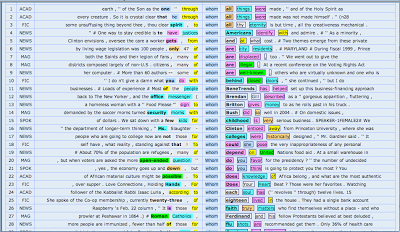
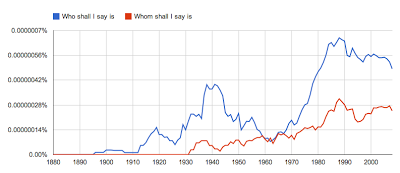
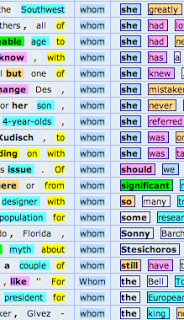




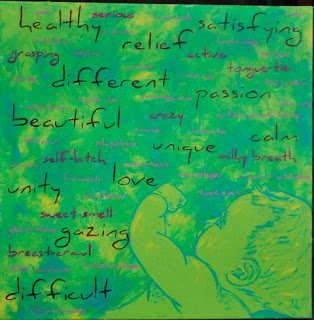
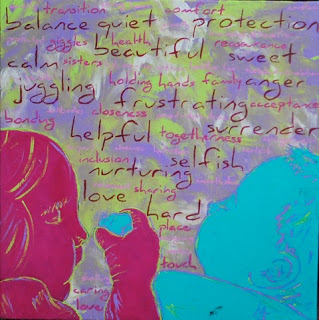







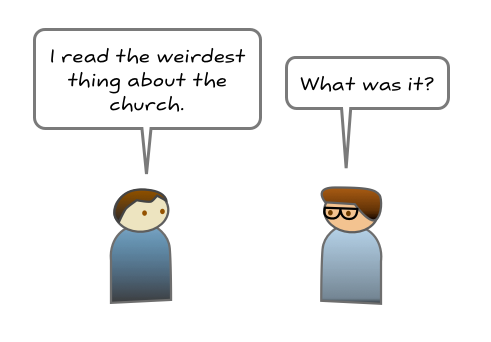

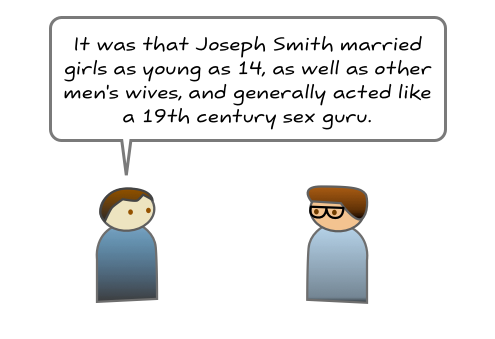

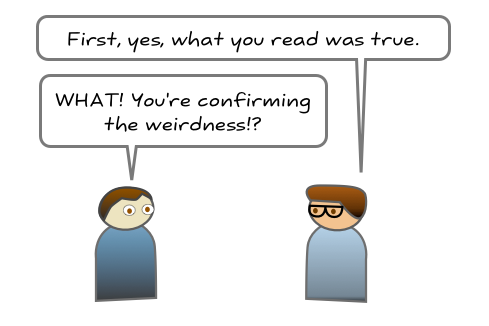
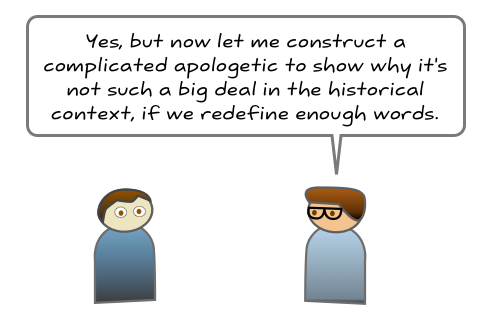
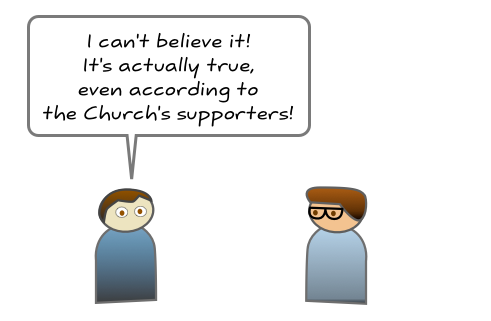
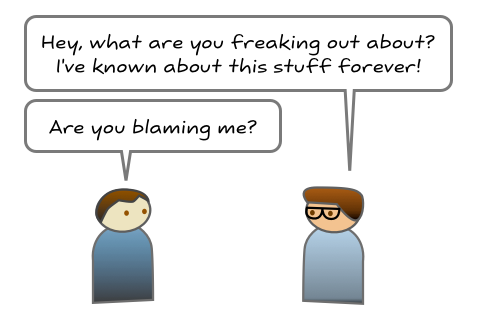
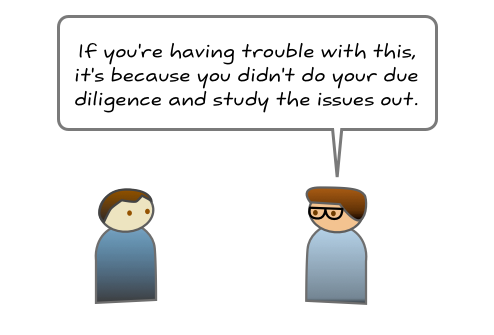

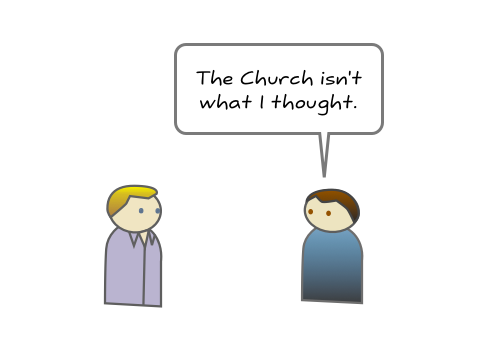

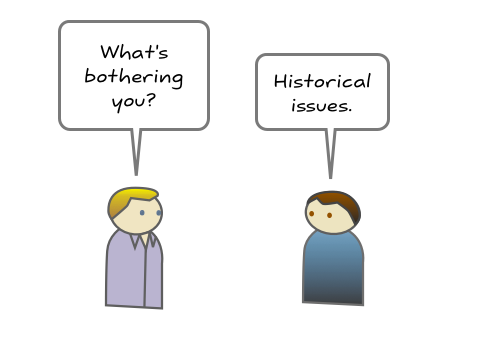


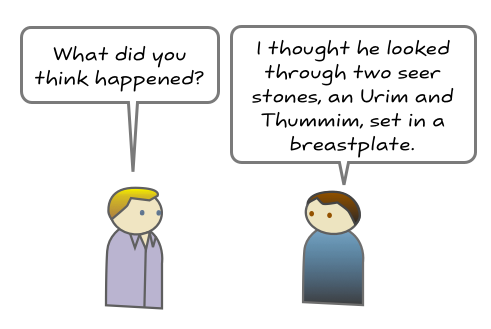
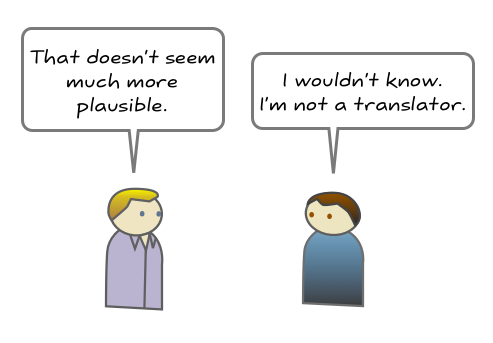
Recent Comments